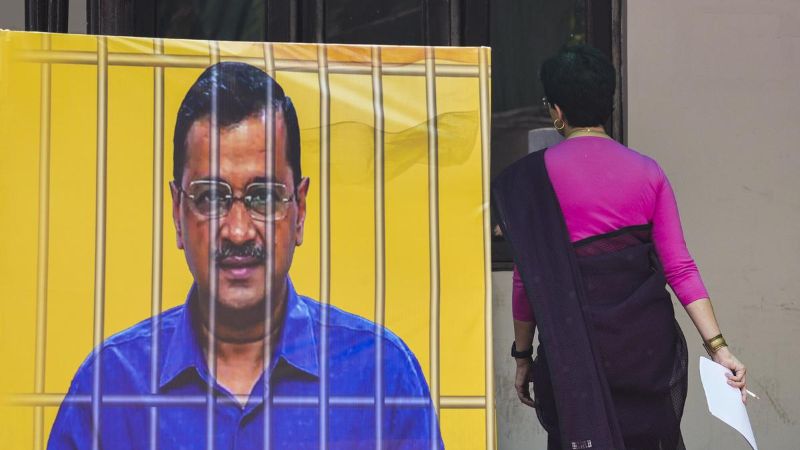The legal saga surrounding the arrest of Delhi Chief Minister Arvind Kejriwal has taken a new twist as the Enforcement Directorate (ED) presents evidence countering allegations of political bias. On April 29, 2024, the Hon’ble Supreme Court witnessed intense legal debates as AAP challenged the legality of Kejriwal’s arrest, alleging political vendetta. However, ED’s evidence shed light on the due process followed leading to Kejriwal’s detention, undermining AAP’s claims.
Contrary to AAP’s assertions of misconduct and political interference, ED revealed that Kejriwal had been issued nine summons prior to his arrest. These summons, intended for questioning related to financial matters under the Prevention of Money Laundering Act (PMLA), were allegedly ignored by Kejriwal. Despite the legal obligation to comply, Kejriwal opted to challenge the summons’ legality before the Hon’ble Delhi High Court. However, the court ruled against Kejriwal, emphasizing his obligation to cooperate with the investigative process.
ED further contended that during questioning on the day of his arrest, Kejriwal remained uncooperative, failing to provide satisfactory responses as mandated by the PMLA. These revelations challenged AAP’s narrative of a politically motivated arrest, highlighting instead Kejriwal’s defiance of legal obligations and due process.
Amidst the legal wrangling, the judiciary faces the daunting task of weighing the evidence presented by both parties. While AAP presses forward with its claims of injustice and political vendetta, ED stands firm in its assertion of upholding the rule of law.
Meanwhile, on 22nd April 2024, the Hon’ble Delhi High Court and the Special PMLA High Court at Rose Avenue addressed concerns regarding Kejriwal’s health during custody. AAP’s allegations of insulin denial and dietary restrictions were met with the formation of a committee comprising experts from the All India Institute of Medical Sciences (AIIMS) to oversee Kejriwal’s medical care.
As the legal battles unfold on multiple fronts, the nation remains gripped by the implications for Kejriwal’s future and the broader landscape of Indian politics.
The ramifications of Kejriwal’s arrest extend beyond legal proceedings, sparking debates and discussions across various sectors of society. Political analysts, legal experts, and citizens alike are divided on the implications of the case, with some viewing it as a test of the judiciary’s independence and others as a manifestation of the ongoing power struggle between political factions.
AAP’s staunch defense of Kejriwal and its allegations of political bias have resonated with a significant portion of the electorate, particularly those sympathetic to the party’s anti-establishment stance. Supporters of AAP have rallied behind Kejriwal, staging protests and social media campaigns to demand his release and decry what they perceive as an attack on democratic values.
Conversely, critics of Kejriwal and AAP have seized upon the legal proceedings to question the party’s integrity and governance record. Accusations of corruption and mismanagement have resurfaced, with opponents of the party citing Kejriwal’s arrest as evidence of a broader pattern of malfeasance within the AAP administration.
Against this backdrop of political polarization and public scrutiny, the judiciary’s role as an impartial arbiter of justice has come under intense scrutiny. The Hon’ble Supreme Court’s handling of the case is being closely monitored, with stakeholders on all sides eagerly awaiting its verdict.
Beyond the immediate legal and political ramifications, Kejriwal’s arrest has broader implications for the future of Indian democracy. The case has reignited debates about the balance of power between central and state governments, the autonomy of law enforcement agencies, and the accountability of elected officials.
As the legal proceedings continue to unfold, the eyes of the nation remain fixed on the outcome, acutely aware of the precedent it may set for future cases involving allegations of political corruption and abuse of power. In the crucible of the courtroom, the fate of Arvind Kejriwal and the principles he represents hangs in the balance, shaping the course of Indian politics for years to come.
As the legal battles unfold on multiple fronts, the nation remains gripped by the implications for Kejriwal’s future and the broader landscape of Indian politics.

